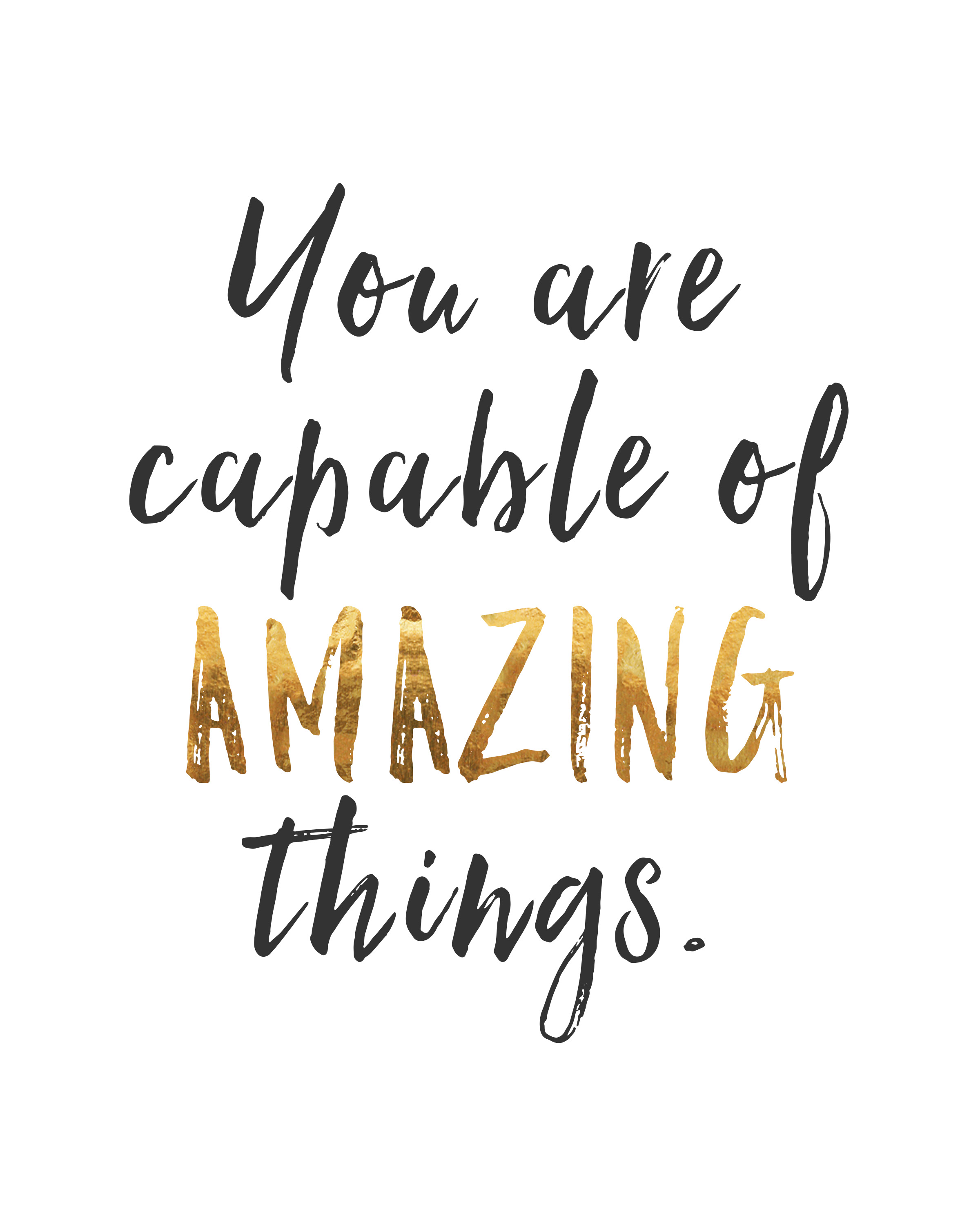Jill Worrell
6 Clever Interview Techniques for Employers
How To Champion Equality, Diversity And Inclusion In Your Workplace
The world of work has changed dramatically in recent years, and the pandemic has heightened awareness for the importance of diversity and inclusion in the workplace.
Recently, there has been an increased realisation from employers that they need to be doing more to promote diversity and inclusion.
A recent CIPD survey found that two-fifths of employers said that they believed a prior investment in diversity and inclusion would help them respond effectively in a crisis to both employee and customer needs.
There are numerous benefits for both employers and their teams when equality, diversity and inclusion are championed in your business.
Today, we look at why this is and how to build a more diverse team.
Keeping Your Diversity and Inclusion Commitment
It is no secret to employers that a diverse team is a productive team.
A Harvard Business Review report found that when making decisions, teams with a diverse make-up outperformed individual decision-makers 87% of the time. Plus, diverse teams are proven to have increased innovation and creativity, have higher employee engagement, and they generate increased profits.
But unfortunately, during the ongoing Covid-19 situation, diversity and inclusion have slipped down the list of priorities for many organisations.
Before the pandemic, 14% of employers ranked diversity and inclusion as one of their top three priorities, whereas further into the lockdown, only 5% still counted it as of high importance.
Equality, diversity and inclusion, although it has certainly gained momentum in recent year as an important issue, should not be treated by employers as a ‘trend’ to dip in and out of when it suits them.
It is something that needs to be built into the mission, vision and ethos of your company.
The Equality Act 2010 states that no individual should be discriminated against in the workplace due to their age, disability, gender, marital status, race, or religion. And yet, in 2020, there is still a lot of work for many organisations to do to ensure that they are operating an entirely equal and inclusive working environment.
So, let’s look at how employers can ensure they are championing equality, diversity and inclusion in their place of work.
Create a Culture of Equality
One of the more challenging elements of creating a fair and equal environment in your workplace is changing the climate that may have been in place for many years, sometimes even decades.
Management styles can get passed down through generations in organisations, as one set of managers and leaders replaces another and picks up subtle ways of working, which can become set within the company ethos.
At best, this can include acting and behaving a certain way which only serves a few individuals out of a whole team, hiring the same type of people. At worst, it can mean actively shunning certain groups of people – and remember, this can be done consciously and subconsciously (we will discuss unconscious bias in more detail in the next section).
So to combat inequality, and cultivate a culture of equality, this needs to be addressed at the most basic level by including an equality, diversity and inclusion article in your company mission statement.
But including an equality objective in your organisation is just the first step.
Remember to continually review and evaluate your policies and procedures to ensure that equality is present in:
- Your recruitment
- Career opportunities and promotion decisions
- Learning and development
- Disciplinary procedures
- Performance management
Next, let’s look at tackling unconscious bias in your workplace.
Managing Unconscious Bias
Unconscious bias can affect all of us, but it is essential that it is managed effectively in your organisation, from whom you choose to employ, who you choose to promote, which members of the team you ‘prefer’ working with and how members of your team engage with each other.
Of course, we are naturally attracted to people with whom we can find common ground, and this affects the way we interact with others both in the workplace and out of it.
You could look into training programmes for the entire team on how to spot and tackle unconscious bias – this type of bias is so ingrained that we often don’t realise that it is happening.
There are also some ways to spot and stop unconscious bias in your workplace, including:
- Being aware of the potential for unconscious bias – talking about it with employees and making them aware of how their interactions can affect others.
- Question yourself and the decisions you make regularly – have you chosen a certain individual for a new project because they are the best person for the job, or because you tend to favour them?
- Create a support network for employees – let them know that if they feel they have been overlooked or singled out due to a bias, that there will always be support for them and that you will actively work to remedy this.
Finally, let’s look at the easiest place to champion diversity and inclusion in your workplace – your recruitment process.
Championing Diversity in Your Recruitment Process
If you are committed to increasing equality, diversity and inclusion in your organisation, your recruitment process is where you can start to make positive changes.
Recruitment can be a complex and emotionally-charged event.
Many employers and hiring managers have very stringent ideas of whom they believe they are looking for, for a particular role. And of course, this affects the potential for a diverse workforce.
Whether conscious or not, it is a fact that hiring managers like to hire people who remind them of themselves.
But this makes for a very un-diverse workforce.
What can be done to reduce bias in your recruitment process?
You can introduce blind skills challenges, make use of AI in your recruitment process or use new and different channels to advertise your roles. You can also work with a dedicated recruiter.
Working with a recruiter will allow you to reduce the amount of bias in your recruitment process, not only as they will work as a mediator between the company and the candidates, which allows for a completely unbiased selection process. But they can also challenge your ideas of the kind of candidate you are looking for and can locate candidates that you would never have been able to access when working alone.
Working within a diverse workforce leads to higher engagement, greater productivity and is better professionally and personally for every member of your team. If you are looking to better your standards of equality, diversion and inclusion within your team, and would like our assistance with recruitment, please don’t hesitate to contact us, we would love to work with you.
Mosaic Recruitment
Signs You Are Ready To Look For a New Job!
These 6 Signs Mean It’s Time to Look for a New Role
Naturally, we all go through periods of having exciting projects on at work which make us fall in love with our roles again; and times when finding motivation is harder.
But if the thought of the end of the weekend and another week in work fills you with dread, this could be a sign that something is seriously wrong.
Either you’ve outgrown your role, your workplace has become toxic, or you realise that your passions lie elsewhere in a different position or with a new company with different values. There are some signs to look out for which indicate that it’s time to look for a new job.
Deciding on a career move can be a daunting thing, and that’s why many people try to ignore the warning signs that they should move on.
Today, we share the six undeniable signs it’s time to look for a new job (and how to find one).
- You Have Stopped Enjoying Going to Work
There can be many reasons people are reluctant to leave the house in the morning, from a commute that is regularly filled with traffic to a lengthy train journey.
But generally, travelling to work should not be a time where you dread the minutes counting down until your morning start time.
Have you found yourself stopping off for a coffee to delay getting into the office; have you started taking the longer route to work; does the thought of work in the morning keep you from sleeping at night?
Of course, many more of us are working from home now, and so the physical act of going to work might soon become a thing of the past in many roles.
But this feeling of dread can become present in morning Zoom meetings, when you’re on a conference call or any time work-related messages pop-up on your screen.
A sense of dread when you think about your job is not normal – if this is happening to you, it’s time to make a change.
- You Feel Disconnected From Your Role
High employee engagement is a characteristic of all excellent employers.
Great employers will ensure that you have the right amount of work to do; that you’re not overworked or frequently find yourself with few tasks and unsure what you should be doing.
You should feel a passion and drive for your role, and a connection to your team and your employer which makes you want to give your best to the job – it was probably there when you applied for this position.
But over time, inadequate management can lead to employees feeling disconnected and then eventually stop caring. It is hard to find enthusiasm for your role when you have become disconnected. Will you ever trust that your employer truly cares about you even if things change in the short-term?
- You are Taking Extra Sick Days
Taking extra sick days, or taking holidays simply to get away from your job is a sign that something is wrong.
It is estimated that 12.7% of all sick days are taken due to mental health problems, which can often be attributed to your current role in the first place.
If your mental health is being affected due to your job, first speak to your manager. They have a duty of care to you to ensure that your position is not causing you harm. Sadly, if the problems are out of your manager’s control, and they continue, it might be time to look for an employer who has an excellent wellbeing reputation.
- You Don’t Get on With Your Boss (or Your Colleagues)
Having a great relationship with your boss and your colleagues is never a given in any role – it’s always a nice added bonus when you find a role you love, and you get on with your team.
But negative relationships with the people you work with every day can quickly become draining, and they can turn a once dream job into a nightmare situation.
There should always be avenues you can explore before it gets as serious as leaving for a different company, but sometimes that’s what it takes.
Toxic workplaces are sadly more common than you might think, and although your job might look great on paper, if your boss regularly puts you down, and the atmosphere in the workplace is continually negative and is holding you back from success in your job role and your whole career, it’s time to find a company where you not only feel fulfilled but also happy.
- You’re Being Underpaid
48% of employees feel that they are underpaid for the work they do – does this sound familiar?
When you start a job, the expectations might have been clear, but what commonly happens in workplaces is that over time, and as you become more experienced within the organisation, you are tasked with more and more duties.
And your remuneration rarely increases with the amount of extra work you are now expected to do.
It might be a simple case of your manager not realising how much extra outside of your role you are taking on – but this again is poor management on their part.
Suppose you are increasingly given extra tasks or are performing managerial duties and your employer tells you that you are not going to be paid any extra for it. In that case, this is a sign that your employer is taking advantage of you.
Not all employers behave like this – now should be the time to find one who doesn’t.
- You Feel Undervalued
Aside from being paid a fair wage for the work you do, it is also important that you feel emotionally valued and supported by your manager and your colleagues.
Signs that you are being undervalued by your current employer include:
- your work is overlooked,
- your performance and pay reviews are continually pushed back,
- you’re not trusted to have autonomy in your role,
- those around you are promoted, and you get left behind.
Being undervalued can be a sign that your current employer is not going to support you in your career and that things are unlikely to change unless the entire company has a management shake-up – but you don’t have to wait for this to happen.
Next Steps
Many people stay in roles that are making them severely unhappy and impacting on their mental health because they believe there is no other option for them.
The truth is there are always other options; you just might not know where to find them – and that’s where we come in.
Speak to us!– we will be able to offer advice and options, put you in touch with new potential employers and organise interviews for you – what are you waiting for? 01279 780 000
Employer Branding in a Post-Pandemic World
Employer Branding in a Post-Pandemic World
Why Employer Branding is Critical in Our Post-Pandemic World
If you haven’t been giving much thought to your employer branding recently, then now is the time to start.
All businesses have an employer brand, whether they actively work on it or not.
Your employer brand is the way the world sees you; from your products and services, your mission, your vision, your ethos and your team – yes, there is a lot to consider!
The question is – how should your employer brand be positioning your company in our post-pandemic world?
The sector has changed, and it is more crucial than ever that your employer brand is positioning you above your competitors.
What is Employer Branding?
Your employer brand is your talent attraction magnet – it is the beacon to the potential pool of candidates to be drawn on that want to work for your company.
It is also the way your customers view your business – the reason people interact with your organisation and the way the wider world views your company.
But for the purpose of today’s article, we are going to be focusing on employer brand in terms of talent attraction.
And specifically, employer branding in our post-pandemic world.
What worked pre-pandemic will not necessarily work now; the best talent is looking for certain things from your post-pandemic employer brand, so let’s look at what they are.
A Considerate Brand
The pandemic has brought down barriers in ways that we could never have expected.
Now more than ever what people are looking for from the organisations they interact with, and specifically the organisations they want to work for, is that they have a personal, considerate approach to being an employer.
People are now looking for reassurance and support wherever they turn – from their friends, their family, and especially their employer.
Transparency is key here too. If you have had to make redundancies in certain areas, but senior management have received bonuses, how will this look to candidates who are researching your brand?
It can be tricky getting the balance here right, but everyone is aware of how tough things have been during the pandemic. Being honest and transparent about the decisions your business has made is key – candidates are increasingly turning away from brands that are seen to be dishonest about their practices.
A Focus on Health and Wellbeing
A big focus for candidates that you must consider in your post-pandemic employer brand is how much of a focus you now have on health and wellbeing.
Wellbeing and particularly mental health have been gaining traction in the employment world for some time, but the pandemic has skyrocketed their importance.
Your post-pandemic employer brand needs to ensure candidates that you are treating the health and wellbeing of your workforce with the utmost importance.
This includes-
- Prioritising clarity and caution – the virus hasn’t gone away yet, and brands who maintain an excellent focus on physically protecting their employees with excellent Covid-19 procedures will be viewed by candidates favourably.
- Offer flexible working (where possible) – allowing employees to work from home and being flexible on the matter is what the best candidates will be looking for.
- Offering real help to support employee health and wellbeing – do you encourage physical health in your employees by providing fresh fruit in the workplace (where it is safely possible) or cycle to work schemes and gym memberships? Do you champion mental wellbeing and strive to be a compassionate employer – if so, will candidates know this from looking at your website or social media?
Showing that you are dedicated to health and wellbeing is not about bragging about it on social media – it’s about demonstrating your values in a way that’s easy for candidates to find and communicates your wellbeing offering in an honest and transparent way.
A Communicative Brand
Communication was the one thing that kept us together during the pandemic, and the way you continue to communicate with candidates during the ongoing crisis and afterwards will be a significant part of your employer brand going forwards.
Your social media channels are the first port of call for candidates to contact you, and your followers (which will include potential future candidates) are still the number one place to maintain your employer brand.
But some organisations stepped away from posting anything on social media during the pandemic. Some thought it insensitive; others simply did not know what to post during the highly changeable time.
But posting online to maintain your employer brand does not always have to be about self-promotion.
There are many different types of content you can share on your social channels to alert candidates to what type of employer you are, and what your company is focusing on in our post-pandemic world.
This can include:
- News and industry updates
- Helpful articles which could be of interest to employees and candidates including think pieces either from your own company or from a thought-leader
- Updates about your company – have you launched new products or services? Have you celebrated a milestone recently? Moved office? People love to see ‘human’ updates from real people about real people (your team).
- And of course – your latest job vacancies.
Giving Candidates a Sense of Purpose
Finally, a sense of purpose is another major factor that great candidates are now looking for in their post-pandemic employers.
Meaningful work is increasingly what millennials are looking for – and this section of workers now makes up the largest part of the worldwide workforce.
The Deloitte 2020 talent survey states that employers should provide meaningful work or they will struggle to attract and retain their workforce.
What is it about your company that makes your employees feel as though they are making a positive difference to the world?
Finally
If you are looking for new talent for your organisation and are struggling to find the ‘Perfect Match’ – we can help.
Get in touch with us on 01279 780000 or email us info@mosaic-recruitment.com and we will help you find the “perfect Match” that you have been looking for.
How to Increase Staff Retention in Your Organisation
A pre-pandemic Retention Report by the Work Institute (2019) found that “one in three workers would voluntarily leave their job by 2023”. And this has only increased due to significant shifts in the market due to Covid-19.
The effects of the pandemic are going to be felt within organisations for years to come, and so employee retention needs to be a key focus in order to ensure you are keeping your team engaged and satisfied in their roles.
Hiring for replacement team members is not something any organisation wants to be doing right now, and so an excellent employee retention strategy is essential.
- Discover Who You’re Overlooking
Teams will naturally include individuals with all manner of skills, experience and personality types.
But in most teams, there will also be team members who shine brighter than others – extroverts tend to get noticed more than introverts, some team members are more likely to speak up if they have a problem, whereas others will try to work through challenges on their own.
As a leader, it is essential that everyone is getting the right amount of support that they need and that you are not overlooking anyone.
Leaders will naturally look to middle managers and other higher-profile employees, but to be a great leader, you must ensure the highest level of employee retention – remember that each and every team member must feel valued and supported.
- Create Unlimited Opportunities for Growth
Many employers will get to the point where they have a great team in place and think that their job is ‘done’.
But continual engagement, training and development is a key part of every employee retention strategy, and we find that talented candidates who look for new roles often cite a desire to develop themselves and their career further as a reason for leaving.
No-one wants to be stuck in a role where they feel as though progression is an unlikely possibility.
So, invest in robust training and development for your team – it can be anything from personal development training to allowing them time to learn new skills.
Demonstrate Excellent Values and Ethics
The most desirable employees are looking for employers with impressive values and ethics.
And this has been accelerated by the pandemic. We are all thinking much more about what is really important to us and working for a company they believe in is high on every employee’s list of priorities.
Employees are more empowered than ever, with social media and online review culture creating an environment where the need to be honest and transparent is more crucial than ever.
How active is your company at demonstrating your values and ethics? Do you champion diversity and inclusion? Are you financially transparent?
Fail to demonstrate excellent values, and you risk losing your employees to a more ethical company.
- Give Employees a Purpose
The best way to find out if your employees feel a sense of meaning and purpose in their work is to talk to them.
Ask them what is important to them in their roles and make any alterations you can to help them feel a greater sense of purpose. This could involve introducing tools to make their jobs easier, and thus, more valued, or working together to improve your products or services to give greater customer satisfaction.
Create a mission statement which helps employees to understand how their work positively impacts the world.
- Enhance Your Employer Brand
Look closely at what your competitors are doing – if you slip in terms of promoting and maintaining an excellent employer brand, this gives employees the opportunity to look elsewhere and to be tempted to leave and work for a brand with a better reputation and culture.
Your digital footprint is key in creating a strong employer brand which your employees will feel proud to be a part of.
Think about what you post and how often. Employees like to see that their employer is actively engaged in current topics, is invested in the wellbeing of the team and is a transparent and communicative employer.
Get your employees involved in team strengthening events, use your social media to champion your current employees – celebrate birthdays, life events and little wins within the organisation.
And finally, let’s look at how a great recruitment strategy is always essential when it comes to employee retention.
- Get Your Recruitment Strategy Right
When you start your employees off on the right foot with an excellent recruitment and onboarding process, this sets the tone for a mutually beneficial employer-employee relationship.
Studies reveal that the better the onboarding process, the lower the turnover.
A shocking 20% of employee turnover happens within the first 45 days, and this is mostly down to a poor onboarding process.
Onboarding is part of the recruitment process, and yet many employers believe that recruitment stops the moment the candidate accepts the job offer.
Invest in your recruitment and onboarding process, and you will start to see a higher rate of employee retention.
Finally
A certain amount of staff turnover is unavoidable.
But follow the steps in this guide to improve unnecessary employee turnover in your organisation.
It is never easy to lose a great employee, but when you work with a professional recruiter, they can help you create the right recruitment and onboarding process to ensure your retention rates remain high, increasing employee engagement and lowering your overall costs of recruitment.
To find out how we can help you find your next talented employee, get in touch with us on 01279 780000 or e mail susan.curran@mosaic-recruitment.com
Susan Curran
Operations Director – Mosaic Recruitment
How to Write a CV - Top Tips for 2020!
New Year. New You. New Job?
January marks a fresh start for people and a time for change. Whilst many may vow to improve their fitness or travel more, for some this can mean a change in workplace, career or industry.

For those looking to make a change and boost their career prospects in 2020, the preparation for change usually starts with updating their CV which is of paramount importance in any job search. For many this can be the most daunting part and in a competitive jobs market you really need something that will make you stand out from the crowd.
So how do you get yourself noticed? How will you secure that dream job? We’ve put together a helpful guide on how to write a CV that’s ready for 2020 and beyond!
How should I present my CV?
- Keep it simple – Your choice of font and layout are key to making sure any potential employer continues reading your CV. Simple works best. Make sure your contact details are listed and up to date. If you have an email address that would be deemed unprofessional, create a new one dedicated to your job search. It takes a matter of minutes to create an email address and could be the difference between being offered an interview or not. Choose a clear, professional font to ensure that your CV can be easily read. Lay it out in a logical order with clear section headings.

Personal Statement
The first thing that’s shown on your CV, so make it count. It should explain who you are, what you’re offering in terms of skills and what you’re looking for in your next challenge. Aim to prove why you’re suitable for the position you’re applying for in one short paragraph. It can be tempting to add what we consider to be great personality traits, for example; team player, passionate, motivated, bubbly. Whilst these are great attributes, try to avoid using clichés and only use traits that truly define you.
Work History
This section should include all of your relevant work experience and should start with the most recent first. Include your job title, the name of the organisation you worked for, how long you were there for, and your key responsibilities. We recommend adopting a bullet point style to list your duties making sure you are being as informative as possible.
Education
Your educational experience and achievements should be listed along with dates, the type of qualification you received and the grade you achieved.
Hobbies and Interests
You don’t need to include hobbies on your CV if you don’t want to and you certainly don’t have to list ‘socialising with friends’ as an interest if it really isn’t. Mentioning relevant interests could help you stand out from the crowd and reiterate that you’re the right person for the job. It could also give you something to talk about should you be invited to interview.

Remember to update your CV regularly
Applying for a role with an old CV may look unprofessional and unorganised. Make sure that yours is regularly updated with relevant skills and experience so employers can easily identify that you’re the right candidate for the job. Every job you apply for may be looking for something different so don’t be afraid to edit your CV each time you apply for a new vacancy to ensure it is tailored to each job specification.
Proof-read and then proof-read again
This refers to spelling mistakes, dates which conflict with one another and incorrect email address and phone number. Avoid errors at all costs. This sounds like an obvious one but so many candidates fall at this hurdle. We suggest getting a fresh pair of eyes to review your handy work so why not ask a friend or family member to read over your CV before you submit any application.
Want more CV advice or to discuss current vacancies? Let Mosaic Recruitment help you to secure your dream job this year.

Contact the Mosaic Recruitment office on 01279 780 000 or email your details to info@mosaic-recruitment.com.
Top Tips for Staying Motivated!
Motivation is the key to success! We all know this. But how do we get motivated? A lack of motivation means a lack of results and a lack of results is bad for any business. If your Manager was to ask you what would motivate you most right now, what would your answer be? I'm sure ‘money’ would be most people's response, but is money really the most motivating factor in you giving your all in the workplace? Sure, by increasing salaries your Manager might resolve the issue short-term but is it going to get the best out of you? Or is it true that motivation starts from within?

We’ve looked into the best ways to stay motivated and become the most successful version of yourself!
Write Down Your Goals.
Tape them on a wall, computer desk or jot them down in your iPhone notes. It doesn’t matter where as long as you’re reminded of them regularly! This will help you stay focussed and on track. No matter how big or small, working towards them is the first step in the right direction.
Adjust The Goalposts.
If a project or task feels too big and daunting don’t let that lead you down the path of procrastination. Instead, break it down into smaller steps and then take just one of them to start moving forward.
Just clean your desk. Update that CV. Or go on that interview. You just need to get started, the first step is always the hardest. When you have finished that small task you’ll feel more alert and ready to go do the next thing.
Remember Your Successes.
Take a moment to think about your successes as often as possible. Celebrate them and reward yourself. Recognising them regularly will only motivate you to want to capture that feeling again.
Think Outside Your Box.
Don't imagine your future from the box of what you have now. Just because you’re not where you want to be at this precise moment, that doesn’t mean that’s the limits of the world. Your possibilities are much larger... Never fear failure.
Cut The Negative Train Of Thought.
Only allow yourself to go on a negative thread of thought for a brief period of time. Then just cut it off, drop it and think about what positive things you can get out of this situation. Don’t feed the negative thoughts with more energy or you might find yourself in a downward spiral. Be constructive about failures and move on.
Get Active.
TV? Do you watch too much? It is proven that exercise can help you become more productive in other areas of your life. Okay maybe exercise is not your thing? Why not think about picking up a new hobby and engaging your brain in a completely new way.
Compare Yourself With Yourself.
Not with others. Comparing what you have and your results to what other people have and have accomplished can really kill your motivation. There are always people ahead of you and there are people who dream of being in your position. Just focus on you. On your results. And how you can and have improved them.
Look back at your experiences to see where you have gone wrong in the past to avoid similar missteps further on. It's important because it’s a great motivator to see how much you have improved and how far you have come.
Let Others Motivate You.
Spend less time with negative people who always look at the dark side of things. In doing so, you free up more time to be with enthusiastic or motivated people and let their energy flow over to you. Why not get motivated by people you’ve never even met? Don’t limit yourself to just the motivation you can get from the people closest you. There is a ton of motivating books, podcasts, blogs and success stories out there that you can tap into to up or renew your motivation.
Be Grateful.
When motivation is running low it’s so easy to start seeing your life and the aspects of it through a negative lens. To put your focus on what you still have and who you are – and to recharge with positivity and motivation – ask yourself a question like: What are 3 things I sometimes take for granted but can be grateful for in my life?
Make Each Day Count.
We don’t have all the time in the world. So focus on today and do the things you really want to do.
Can Mosaic Recruitment Help?
If you find yourself looking for a new position, why not give us a call to discuss how we can help you. You can find all of our details on our Get In Touch page. We currently have lots of exciting vacancies and would love to hear from you!






